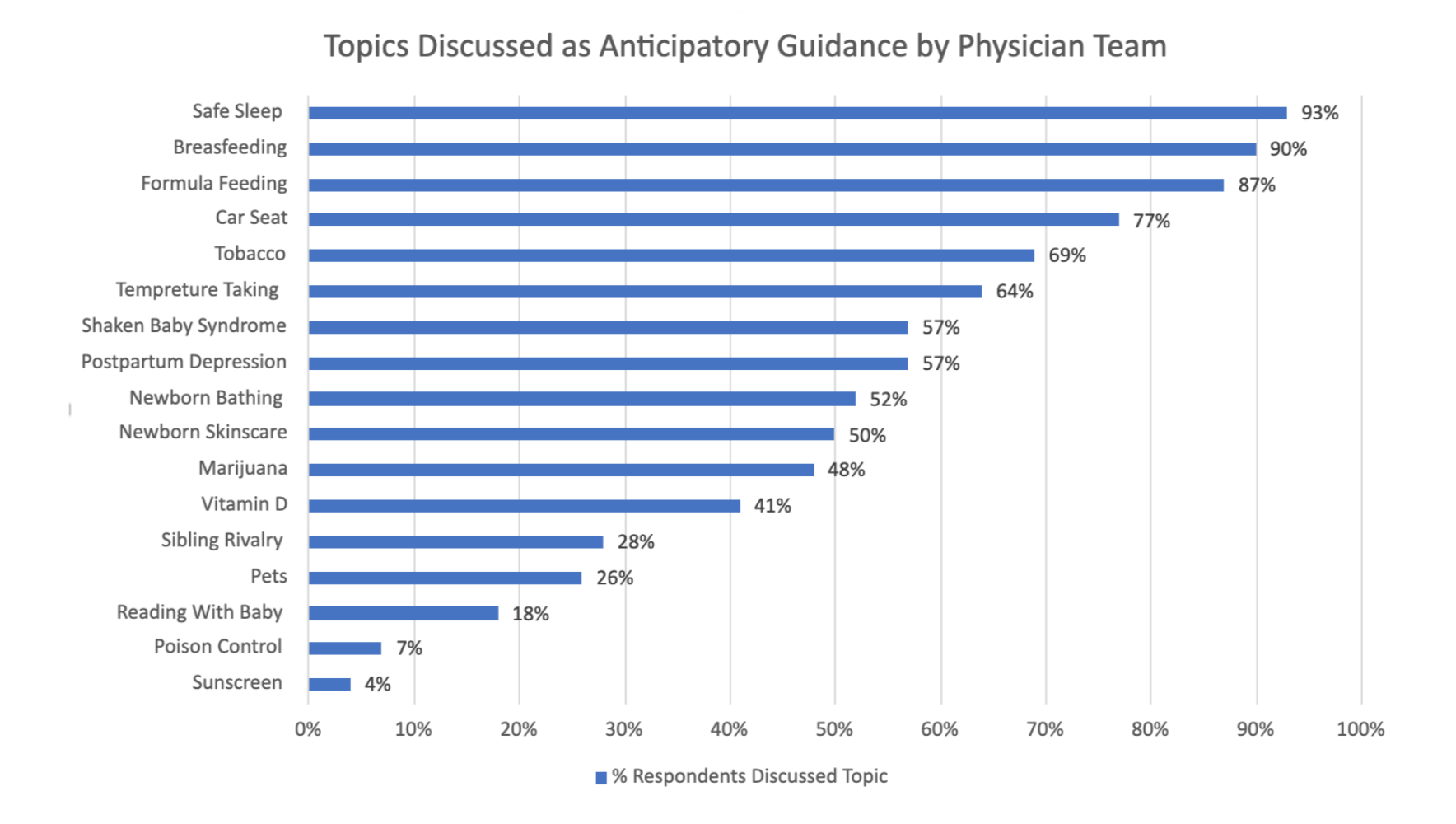General Pediatrics: All Areas
Category: Abstract Submission
General Pediatrics II
602 - Anticipatory Guidance in the Newborn Nursery: A Survey of the Better Outcomes through Research for Newborns Network
Saturday, April 23, 2022
3:30 PM - 6:00 PM US MT
Poster Number: 602
Publication Number: 602.209
Publication Number: 602.209
Shannen Recio, University of California, Davis, Davis, CA, United States; Hye-Yin (Helen) Kim, Kaiser Permanente Pediatric Care Center, Los Angeles, CA, United States; Kelly E. Wood, University of Iowa Carver College of Medicine, Coralville, IA, United States; Neera Goyal, Nemours Children's Hospital, Philadelphia, PA, United States; Jia Xin Huang, UCSF Benioff Children's Hospital San Francisco, Oakland, CA, United States; Erik Fernandez Y Garcia, University of California Davis Children's Hospital, sacramento, CA, United States; Nichole Nidey, Cincinnati Children's Hospital Medical Center, Cincinnati, OH, United States; Dennis West, Academic Pediatric Association, Washington, DC, United States; Laura R. Kair, University of California, Davis, School of Medicine, Sacramento, CA, United States

Shannen Recio
Undergraduate Researcher
University of California, Davis
Davis, California, United States
Presenting Author(s)
Background: The American Academy of Pediatrics (AAP) formally recommends early literacy interventions beginning in infancy, including shared reading beginning as soon as possible birth, because it promotes optimal infant development and parent-child interaction. However, shared reading guidance in primary care pediatrics often begins at six months and there is limited research on promoting shared reading practices with newborn infants.
Objective: The objective of this study is to estimate the prevalence of and variations in anticipatory guidance about shared reading given during the newborn stay at hospitals across the United States.
Design/Methods: From 2020 to 2021, a survey was sent to 110 physician representatives from hospitals (one representative per hospital) participating in the BORN Network regarding anticipatory guidance topics discussed with families during the newborn hospitalization. Descriptive statistics were used to summarize guidance practices across hospitals.
Results: Of 110 hospitals in the BORN Network contacted by email, representatives from 61 discrete hospitals participated (55% response rate) from 33 states. Anticipatory guidance topics varied widely across hospitals (Figure 1), with the most commonly discussed topics being safe sleep (93%), breastfeeding (90%), formula feeding (87%), and car seat safety (77%). Reading with their newborn is discussed with families at 11 (18%) hospitals. Nineteen hospitals (31%) provide children’s books to new parents, with most of these books only available in English. In addition, 28 (46%) respondents selected ‘I don’t know’ to the question of when early reading should be introduced, with 21 (36%) stating it should begin at the 2-week visit and another 17 (29%) in the newborn period.Conclusion(s): Anticipatory guidance practices vary widely across U.S. hospitals. Shared reading is not routinely discussed during newborn hospitalization, and provider opinion varies as to optimal timing of its introduction. To prioritize the types of anticipatory guidance given in the newborn hospitalization, additional research is needed to determine which anticipatory guidance topics influence caregiver behavior when discussed in the newborn period and to assess the impact of early introduction of reading guidance on shared reading behaviors and child development.
Topics Discussed as Anticipatory Guidance by Physician Team Anticipatory guidance topics varied widely across hospitals
Anticipatory guidance topics varied widely across hospitals
Objective: The objective of this study is to estimate the prevalence of and variations in anticipatory guidance about shared reading given during the newborn stay at hospitals across the United States.
Design/Methods: From 2020 to 2021, a survey was sent to 110 physician representatives from hospitals (one representative per hospital) participating in the BORN Network regarding anticipatory guidance topics discussed with families during the newborn hospitalization. Descriptive statistics were used to summarize guidance practices across hospitals.
Results: Of 110 hospitals in the BORN Network contacted by email, representatives from 61 discrete hospitals participated (55% response rate) from 33 states. Anticipatory guidance topics varied widely across hospitals (Figure 1), with the most commonly discussed topics being safe sleep (93%), breastfeeding (90%), formula feeding (87%), and car seat safety (77%). Reading with their newborn is discussed with families at 11 (18%) hospitals. Nineteen hospitals (31%) provide children’s books to new parents, with most of these books only available in English. In addition, 28 (46%) respondents selected ‘I don’t know’ to the question of when early reading should be introduced, with 21 (36%) stating it should begin at the 2-week visit and another 17 (29%) in the newborn period.Conclusion(s): Anticipatory guidance practices vary widely across U.S. hospitals. Shared reading is not routinely discussed during newborn hospitalization, and provider opinion varies as to optimal timing of its introduction. To prioritize the types of anticipatory guidance given in the newborn hospitalization, additional research is needed to determine which anticipatory guidance topics influence caregiver behavior when discussed in the newborn period and to assess the impact of early introduction of reading guidance on shared reading behaviors and child development.
Topics Discussed as Anticipatory Guidance by Physician Team
 Anticipatory guidance topics varied widely across hospitals
Anticipatory guidance topics varied widely across hospitals